
Those who argue that the so-called «Obama Doctrine» on foreign policy has been amorphous and conflicting, at best, see the prospects of a Hillary Clinton administration as even more damaging to U.S. foreign policy. Now that the former Secretary of State has formally announced her candidacy for the U.S. presidency, foreign policy experts are dissecting her decisions while America’s chief diplomat. Not only were the most notable failures of Obama’s foreign policy a direct result of Mrs. Clinton’s saber-rattling and brinkmanship on the world stage, but her willingness to engage in operations paralleling the themed revolution mania of George Soros has many diplomats worried that a Hillary Clinton administration, with her husband as «roving ambassador», will see more foolhardy interventionist American adventurism.
By the time Obama was almost persuaded to involve the United States militarily in the Syrian civil war, propelled by Mrs. Clinton’s «Responsibility to Protect» or «R2P» doctrine developed with the assistance of then-U.S. ambassador to the United Nations Susan Rice and National Security Council point person for Multilateral Affairs and Human Rights, Samantha Power, he realized that R2P was a sure-fire way to embroil the U.S. in another bloody civil war in the Middle East. Had Obama overruled Clinton, Rice, and Power on previous R2P operations in Tunisia, Libya, Egypt, and Yemen, there would have been no threatening menace of the Islamic State of Iraq and the Levant (ISIL) in Syria and Iraq or its various offshoots in Libya, Tunisia, Yemen, and Egypt.
Not only will Mrs. Clinton, as president, champion more R2P causes and bring more instability to the world but she will undoubtedly promote her hand-picked Assistant Secretary of State for European and Eurasian Affairs, Victoria Nuland, the mastermind of the «Euromaidan» coup d’etat in Ukraine that has done more to destabilize Europe than any event since Ronald Reagan’s introduction of nuclear-armed cruise missiles in Western Europe in the 1980s. Mrs. Clinton may even find a senior foreign policy job for Nuland’s husband, the Brookings Institution’s Robert Kagan, one of the neo-conservative architects of the U.S. invasion and occupation of Iraq, the 2002 Senate authorization for which Mrs. Clinton voted in favor while she was a senator from New York.

Other Hillary acolytes at the State Department who managed to set back U.S. foreign policy decades because of aggressive interventionism include Roberta Jacobson, the Assistant Secretary of State for Western Hemisphere Affairs who managed to irritate Venezuela by calling it a «threat» to U.S. national security on the very eve of Obama’s attendance at the Summit of the Americas in Panama. Obama and Jacobson were forced to backtrack on the U.S. position on Venezuela amid vocal criticism from many Latin American and Caribbean leaders. Of course, Mrs. Clinton’s reign at the State Department includes her support for a military coup that ousted Honduran President Manuel Zelaya from power in 2009.
Then-Secretary of State Clinton ardently supported the coup against Zelaya that was coordinated by her ambassador in Tegucigalpa, Hugo Llorens, a Cuban-American career diplomat with close links to the right-wing elements of the Cuban community in southern Florida. Although the U.S. ambassador stated in a cable to Clinton subsequent to the coup that the operation was illegal, Clinton refused to cut off financial assistance to the Honduran junta that seized power. Mrs. Clinton, ever the lawyer looking for a way to doge an issue, refused to call the overthrow of Zelaya a coup because that would require U.S. assistance to be cut off to the military junta. Llorens could not have been clearer in his post-coup confidential cable to Clinton, which was later leaked to WikiLeaks:
«Regardless of the merits of Zelaya's alleged constitutional violations, it is clear from even a cursory reading that his removal by military means was illegal, and even the most zealous of coup defenders have been unable to make convincing arguments to bridge the intellectual gulf between ‘Zelaya broke the law’ to ‘therefore, he was packed off to Costa Rica by the military without a trial.’»
Just days before Clinton announced her candidacy for president in a video released on the Internet, Obama told Latin American leaders that America’s «days of meddling» in Latin American affairs was over. Yet, only six years before, Obama’s Secretary of State meddled in Honduras by approving a coup against its legitimate president. That was followed by a «constitutional coup» against Paraguay’s president Fernando Lugo in 2012, while Mrs. Clinton was Secretary of State. There were also coup attempts on Mrs. Clinton’s watch against the presidents of Bolivia, Ecuador, in addition to Venezuela’s President Nicolas Maduro.

Clinton will try and obfuscate on her role in the Honduran coup, however, it was significant. Clinton met Zelaya at the Organization of American States summit at San Pedro Sula, Honduras just a few weeks prior to the coup d'etat. The late Venezuelan President Hugo Chavez and Bolivian President Evo Morales stated that the coup could not have been carried out without the active support of the U.S. Southern Command in Miami, as well as U.S. military personnel stationed at the Soto Cano-Palmerola airbase in Honduras. Zelaya irked the Pentagon when he announced plans to transform the airbase into a commercial international airport. Many of Honduras's senior officers, including the coup leaders, were trained by the notorious Western Hemisphere Institute for Security Cooperation in Fort Benning, Georgia, the old "School of the Americas," and eagerly followed orders issued from the Pentagon like drooling dogs waiting for a bone.
Perhaps nothing illustrated Mrs. Clinton’s perfidy more than the news in October 2011 that U.S.-backed terrorists had brutally assassinated Libyan leader Muammar Qaddafi after having sodomized him. On a CBS News broadcast, Clinton cackled, «Hillary Clinton says on a CBS News broadcast: "We came, we saw, he died." There was ample evidence at the time that Qaddafi and his motorcade were flying the white flag of surrender at the time they were attacked by Libyan rebel and NATO forces.

During her 2007 presidential run, Mrs. Clinton was flown to various campaign venues on an Air Rutter International Gulfstream II (tail number N216RR). Air Rutter was owned by Clinton campaign donor Arik Kislin, the son of Sam (Semyon) Kislin, a wealthy New York emigré from Odessa, Ukraine. INTERPOL reported that Sam Kislin’s Trans Commodities, Inc. was linked to two reputed Uzbek mobsters, Lev and Mikhail Chernoy. The Chernoys are citizens of Israel. Sam Kislin is a prominent supporter of the United Jewish Appeal and Israel. The trouble with Hillary Clinton is that she, like her philandering husband, constantly courts scandal. For example, on October 1, 2007, the New York Post reported that an ex-employee of Air Rutter, Mark Billey, subsequently arrested on federal child sex charges, said he noted a number of armed U.S. Marshals at Air Rutter's facilities in Long Beach. This was during the time that the airline was flying Mrs. Clinton around the country.
A Hillary Clinton presidency, will, like her term as Secretary of State, be heavy on glitzy photo-ops and short on substance. In 2011, after Chile experienced a devastating earthquake, Clinton angered Chileans with a photo-op visit just days before President Michelle Bachelet was due to leave office after the new president, Sebastian Pinera, was inaugurated. Mrs. Clinton’s pandering of foreign governments for large donations to her and her husband’s Clinton Foundation will obviously continue if the couple are to be granted residency, once again, at 1600 Pennsylvania Avenue. Bill Clinton has made it a lucrative business to collect massive amounts of funds for earthquake and tsunami stricken countries like Indonesia and Haiti. In the case of Haiti, little of the aid money destined for earthquake survivors ever made it to the intended recipients.



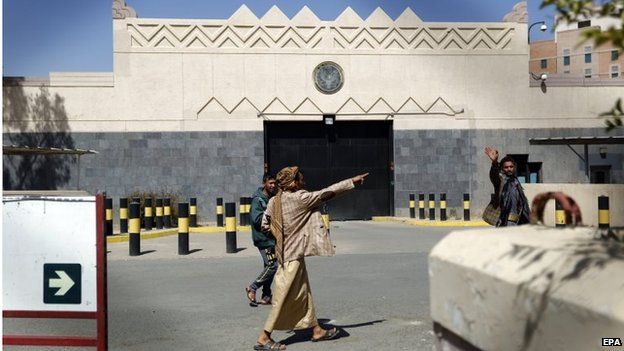

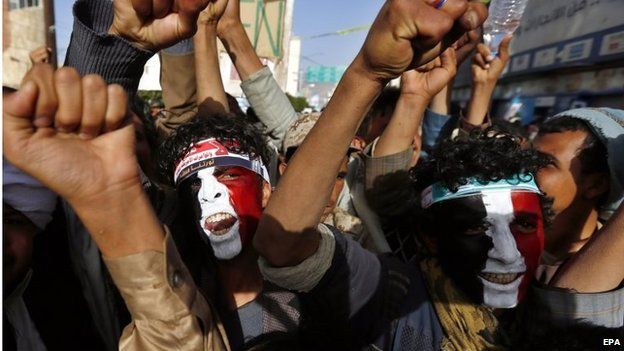

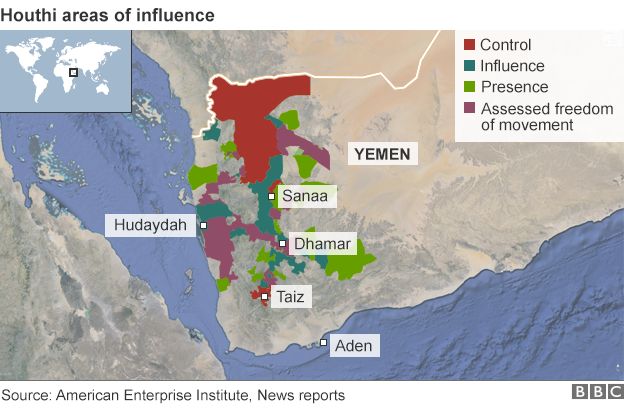

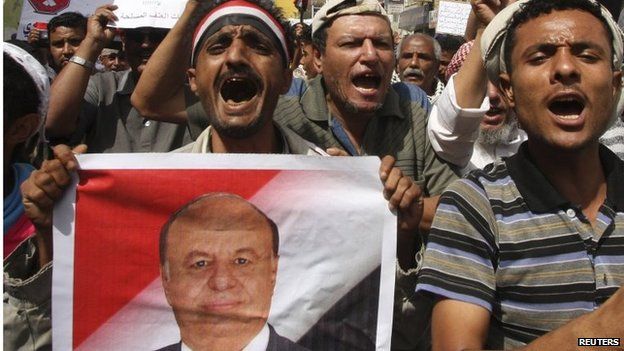
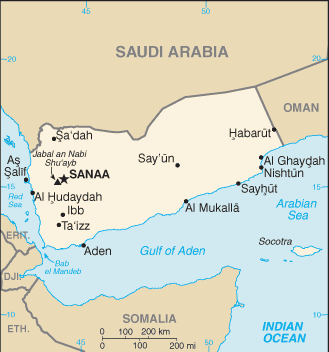 Now, US warplanes are also being used to help select potential targets for Saudi planes, likely to be a controversial move since the Saudis have killed an enormous number of civilians in their strikes so far.
Now, US warplanes are also being used to help select potential targets for Saudi planes, likely to be a controversial move since the Saudis have killed an enormous number of civilians in their strikes so far.